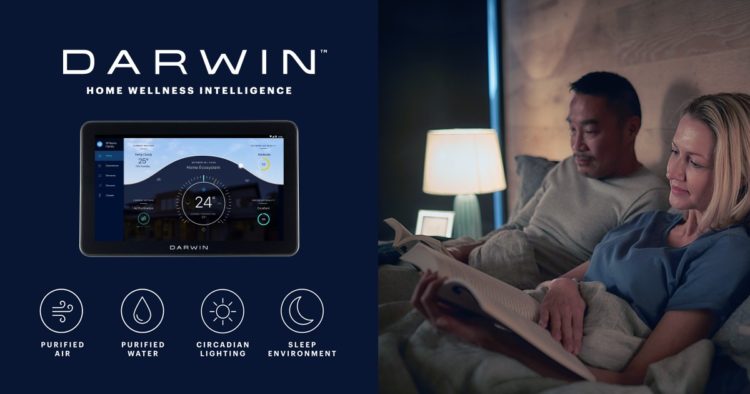
Ambient lighting conditions in your home can influence almost every aspect of your life from your mood to how well you sleep. After generations of evolution, your body clock still relies on the natural cycle of sunlight to regulate your circadian rhythm.
These rhythms synchronize many aspects of your physiology, especially sleep cycles. Installing dynamic lighting in your home can help support your circadian rhythm which optimizes your health through balancing your sleep cycle.
What is Circadian Lighting?
Circadian lighting changes the Kelvin rating or color temperature of your indoor lights throughout the day helping to keep your circadian rhythm balanced. In the morning the light will have a bluer hue of white and a greater intensity replicating the sun helping you wake up faster. As time moves on the color temperature will change.
In the early afternoon, the lighting will have a higher intensity of white light to aid in keeping you alert throughout your day.
When you get into the evening hours the lights will start dimming and the color temperature will change to a warmer amber color matching the late afternoon light of the sun. The warmer light helps your body recognize it is time to slow down and get ready to sleep.
Companies such as Delos have created wellness lighting systems for your home to help keep your circadian rhythm in sync. The Delos Darwin Premier system, created in a partnership with the Mayo Clinic Well-Living Lab, developed pre-configured algorithms that work in conjunction with existing smart home lighting systems.
This provides your home with optimal lighting conditions that automatically adapt to your location’s sun cycle. Having a circadian lighting system installed in your home can help you fall asleep, stay asleep, wake up refreshed and give you more energy throughout the day.
Benefits of Circadian Lighting
Sleep is one of the most important factors contributing to human health and well-being. Getting healthy sleep helps regulate your metabolism, strengthens your memory, regulates your emotions and helps prevent more serious issues such as nocturnal asthma and heart attacks.
However, one-third of adults in the United States suffer from sleep deprivation which has led the U.S. Centers for Disease Control and Prevention to label the issue a public health concern.
Since our daily schedules don’t correlate with sunrise and sunset anymore Mayo Clinic doctors suggest circadian lighting as a way to keep your sleep schedule in sync with the natural day/night cycle of the sun.
Having your circadian rhythm functioning normally allows your body to secrete melatonin, the hormone which helps you sleep, at the right time. It also regulates when cortisol, the hormone stimulating wakefulness in the morning, is released into your system.
How Circadian Rhythm Works?

There are many circadian regulated processes in your body that are controlled by a pacemaker in the brain called the suprachiasmatic nucleus. The SCN determines how your circadian rhythm reacts to light.
According to Dr. Frank Scheer, associate professor of medicine at Harvard Medical School, your circadian rhythm is a product of the body clock. The main clock is located in the brain with trillions of smaller clocks throughout the body in virtually every cell. Having your circadian rhythm disrupted puts these clocks out of sync which can lead to multiple health issues such as diabetes, obesity, depression and dementia.
Being aware of the effect light has on your body and having your circadian rhythm in sync is important in having a healthy lifestyle while deterring negative health events. Installing circadian lighting in your home can help anyone who is looking to optimize their health and wellness.
About the Author:
Michael Frackman is the System Design Consultant for Automated Environments in Mesa, Arizona. Automated Environments has been installing residential/commercial audio, visual, security, and smart systems in the central Arizona area for 25 years.












